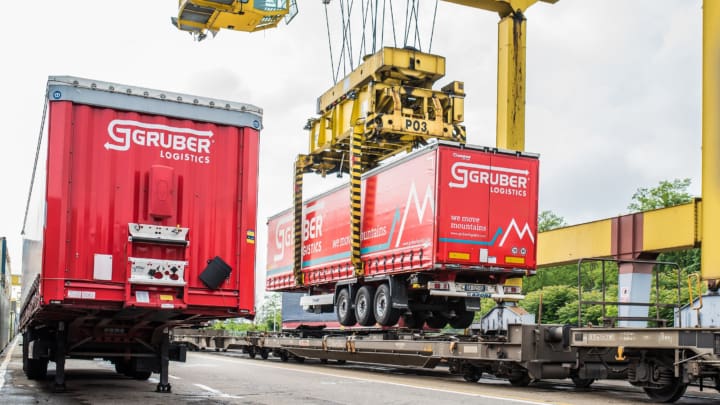
In collaboration with a multidisciplinary team of 17 European partners, transport company Gruber Logistics aims to transform logistics hubs such as ports and intermodal hubs into seamless, multimodal automated freight transport platforms, significantly advancing the current state of digitalisation and automation in the industry.
By participating in the project, which focuses on the Antwerp-Bruges and Trieste ports, the international transport company is promoting emission-free freight transport and associated new business models.
As part of AUTOSUP, specific operating models for end-to-end intermodal logistics are being developed. The focus is on connecting the ports of Trieste and Antwerp-Bruges from Turkey and via Germany with road corridors, rail transport, inland waterways and airports. These two ports serve as so-called “living hubs” in which the efficiency, cost-effectiveness and acceptance of the automation solutions are tested in six use cases covering all existing and new modes of transport.
“As a provider of multimodal logistics services, we are integral to every aspect of the B2B value chains and various transportation methods. In this project, our focus will be on the Trieste ‘living hub’, where we aim to automate processes associated with multimodal connections. These connections extend from Turkey, pass through the port of Trieste, and continue towards Germany and Antwerp-Bruges. Gruber Logistics maintains a physical presence in all these countries and is committed to expanding its operations,” said Martin Gruber, CEO of Gruber Logistics.
In addition to the selection of the transport company, the automation also covers the ordering of the delivery, the transmission of transport data and the exchange of documents.
The benefits of this process automation supported by Gruber Logistics include the seamless integration of transport decisions with the automatic transmission of the loading order, the automatic exchange of documents and the reduction of employee workload. Overall, the project aims to reduce investment and operating costs, make supply chains more resilient and reduce the environmental impact.
Gruber Logistics was equipped with a system that provides data-based support for the introduction and implementation of automated processes and solutions as well as decision-making on future investments. The systems rely on the use of simulations by digital twins when carrying out feasibility studies, which include various degrees of automation. This enables the impact on logistics performance, costs and the environment to be assessed.
“This project not only advances the digitalisation and automation processes of the logistics sector throughout Europe, but also paves the way for fully automated hubs in key European nodes,” said Fabrizio Borgogna, Gruber Logistics’ innovation specialist.
